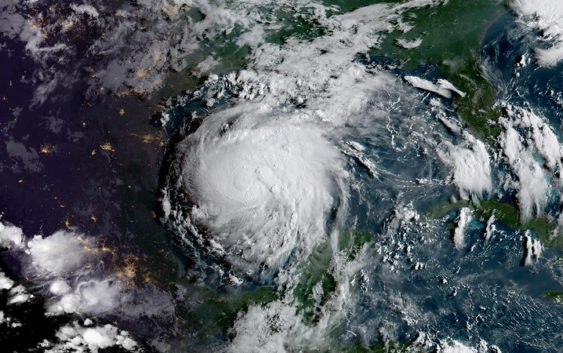- Austin adopts new map that greatly expands area at risk of wildfire
- CenterPoint Energy accelerates infrastructure improvements ahead of hurricane season
- Carolina Hurricanes playoff tickets go on sale Thursday
- Ask the Meteorologist: Why do tornadoes target Tornado Alley, Dixie Alley?
- Nonprofit closes distribution site that aided thousands after Hurricane Helene
Prepare For An ‘Above Average’ 2021 Hurricane Season

This week marks the start of the six-month hurricane season, which lasts until Nov. 30. Last year there was a record 30 named storms, and forecasters are expecting another active season in the Atlantic this year.
New York Times science reporter John Schwartz says after speaking with experts from the National Oceanic Atmospheric Administration, everyone living along the Texas Gulf Coast should be prepared for anything.
“It’s not likely to be as bad as it was last year, where they actually ran out of alphabet letters and had to start with Greek [letters],” Schwartz told Texas Standard. “But they are expecting 13 to 20 named storms, six to 10 hurricanes and three to five major hurricanes. Those numbers might change over time as we see what happens in the Pacific with warming water there. But that’s still an active season, and frankly it only takes one to mess everything up.”
With so many storms last year, it can be easy to blame such events directly on climate change. But Schwartz says it’s important for the scientific community to appropriately frame discussions about hurricanes a warming climate to avoid misinformation.
“You’ll have people say things like, ‘Climate change caused this hurricane,’” he said. “No, we had hurricanes before; we’ll have hurricanes again. What’s different is that climate change sort of has the capacity to boost or juice up these storms.”
Schwartz says it’s more effective when scientists asks specific questions when it comes to weather events, rather than drawing broad conclusions – questions like, “What was the effect? How much more rain did we get? How much more destruction did we see that you can attribute to climate change?” he said.
Plus, he says the science of climate change constantly evolving.
Still, he acknowledges its effects are real, and says Gulf Coast residents know that all too well.
“A rising sea level means that storm surge is worse, rising moisture in the atmosphere as the atmosphere warms and slower storms mean that the flood potential is greater. And anybody in Houston or Beaumont understands that deeply at this point,” he said.